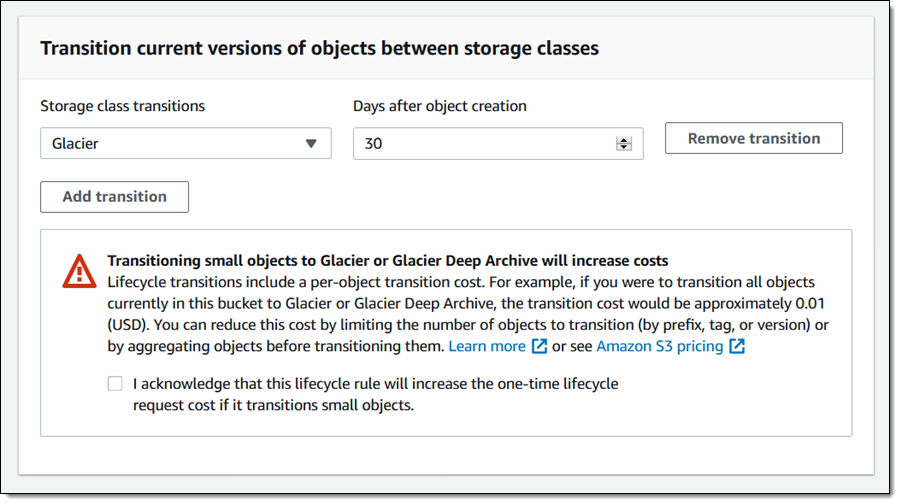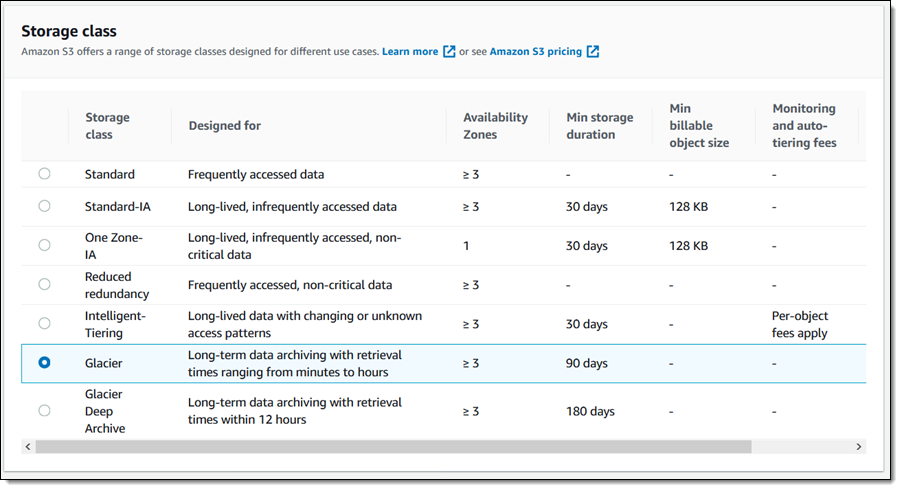AWS Feed
Amazon S3 Glacier Price Reduction

The Amazon S3 Glacier storage class is ideal for data archiving and long-term backup of information that will be accessed at least once per quarter (Amazon S3 Glacier Deep Archive is a better fit for data that is seldom accessed).
Amazon S3 Glacier stores your data across three Availability Zones (AZs), each physically separated from the others by a meaningful distance, but no more than 100 km (60 miles). You can store your archives and backups for as little as $4 per terabyte per month, and then choose between three retrieval options (Expedited, Standard, and Bulk) when you need access.

Our customers use this storage class for media asset workflows, archiving of healthcare and financial services data that is subject to retention requirements, scientific data storage, digital preservation, and as a replacement for magnetic tape. To learn more, check out our case studies from Nasdaq, Reuters, Teespring, BandLab, and Celgene.
Now More Cost-Effective
In addition to being durable and secure, the S3 Glacier storage class is now even more cost-effective than before. Effective March 1, 2021, we are lowering the charges for PUT and Lifecycle requests to S3 Glacier by 40% for all AWS Regions. This includes the AWS GovCloud (US) Regions, the AWS China (Beijing) Region, operated by Sinnet, and the AWS China (Ningxia) Region, operated by NWCD. Check out the Amazon S3 Pricing page for more information.
You can use the S3 PUT API to directly store compliance and backup data in S3 Glacier. You can also use S3 Lifecycle policies to save on storage costs for data that is rarely accessed:

If you are ready to build a comprehensive backup or archiving system, be sure to check out our Backup and Restore page and don’t forget to take a look at the products & services offered by the AWS Storage Competency Partners.
— Jeff;


